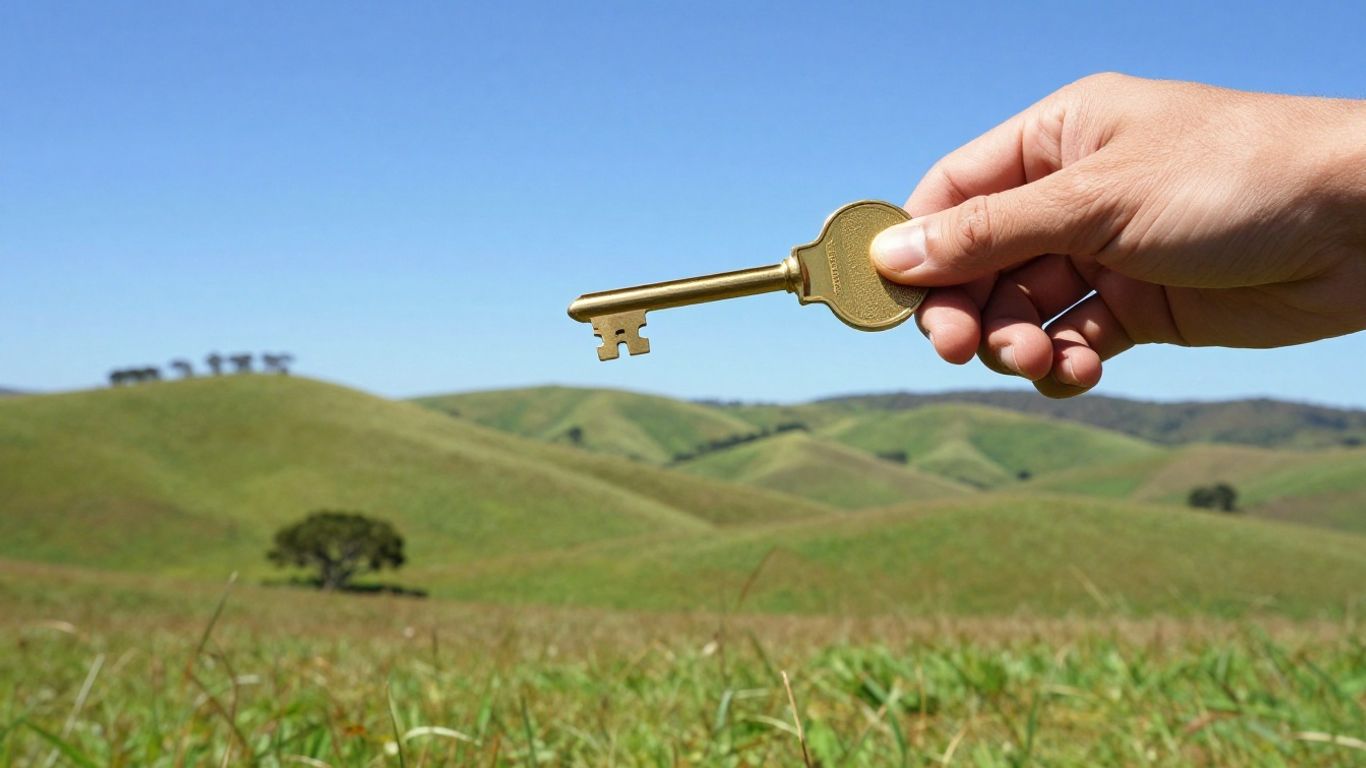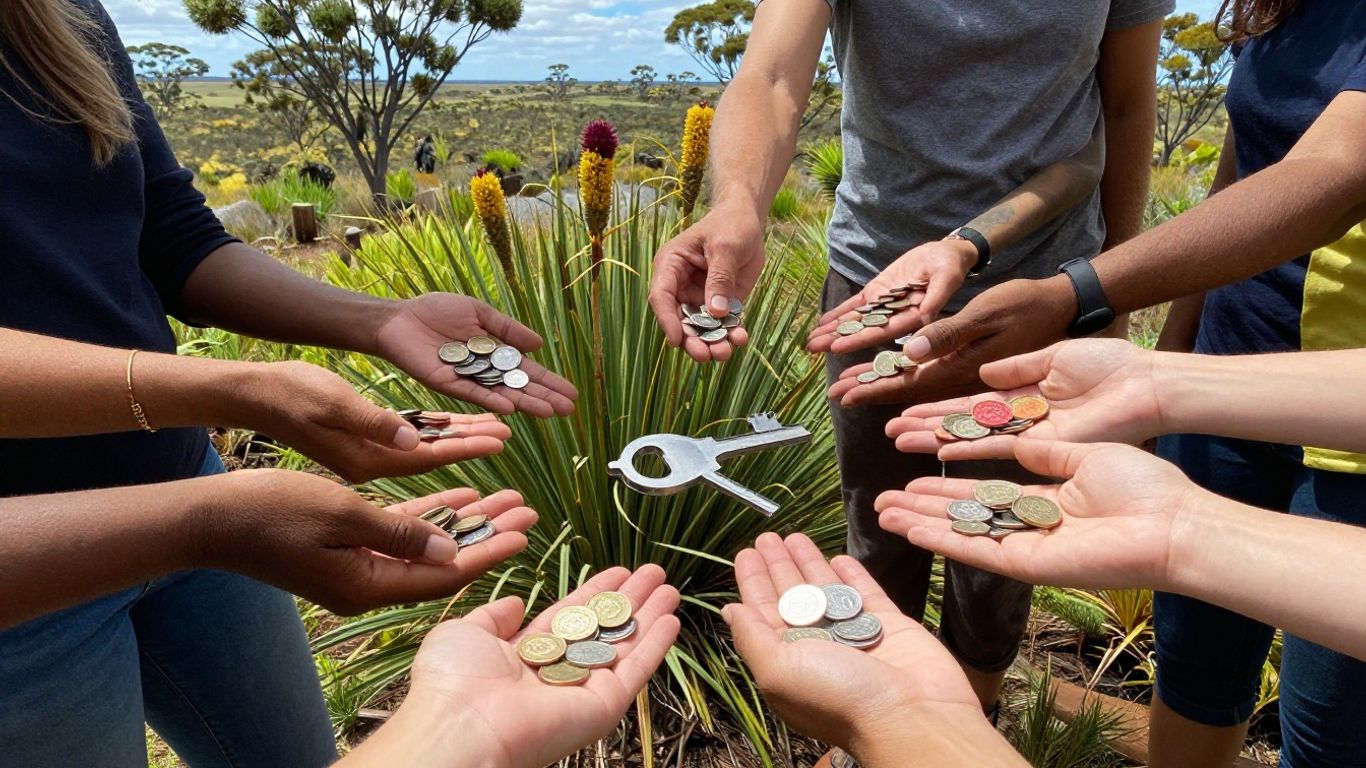Thinking about scoring a job down under, but don’t want to pack your bags? You’re in luck! Australia’s job market is opening up for remote workers, and the opportunities for high paying remote jobs are really taking off in 2025. Whether you’re a whiz with code, a whiz with words, or a whiz with numbers, there’s a good chance you can find something that fits. We’ll walk you through what you need to know to land one of these great roles without leaving your home country.
Key Takeaways
- Many foreigners are looking for high paying remote jobs in Australia for the good pay and flexibility, without needing to move.
- Technology, creative, marketing, and finance sectors are offering many remote roles.
- Having good communication skills and being comfortable with online tools are important for remote work.
- Use Australian job sites and global platforms to find opportunities, and don’t forget to network.
- Tailor your resume and online profile to show you’re ready for remote work and understand Australian expectations.
Understanding the Appeal of Australian Remote Work

Australia’s appeal for remote work is growing, and it’s not just about the beaches and sunshine, though those are nice perks. For folks outside the country, landing a high-paying remote job with an Australian company means access to a strong economy and a good standard of living, all without needing to pack your bags and move. It’s a way to tap into a different job market and potentially boost your income and career prospects. Plus, with Australia’s investment in digital infrastructure, working remotely for Aussie businesses is becoming more practical than ever.
Why Foreigners Seek High Paying Remote Jobs in Australia
Lots of people from overseas are looking for remote work with Australian companies. Why? Well, the salaries are often quite good, paid in Australian dollars, which can be a nice boost depending on where you’re based. It also means you can get a taste of the Australian work culture and gain experience without the hassle of visas or relocating. Many Australian businesses are open to hiring skilled workers from anywhere, especially in tech and digital fields. This makes it a really attractive option for anyone wanting to advance their career from the comfort of their own home.
Defining What Constitutes a Remote Role
So, what exactly is a remote role in the Australian context? Simply put, it’s a job where you don’t have to show up at a physical office. You can do the work from your home, a co-working space, or pretty much anywhere with a decent internet connection. For international workers, this usually means the company is happy to hire you as a contractor or freelancer. The key is that you have the skills and the setup to work independently and, depending on the company, be available during certain Australian business hours. It’s all about flexibility and getting the job done, no matter where you are.
Key Benefits for International Talent
Working remotely for an Australian company offers a bunch of advantages for people living abroad. You get access to a stable and growing economy, which is always a plus. The work culture in Australia often values work-life balance, and this can translate into remote roles too. Plus, many Australian companies are keen to hire people with diverse skills and backgrounds, so your international experience can be a real asset. It’s a chance to gain valuable experience, earn a competitive salary, and work with a company that’s often at the forefront of innovation, all while keeping your feet firmly planted in your home country. It’s a pretty sweet deal if you ask me, offering a chance to improve your work situation without a major life upheaval. Many remote workers report better well-being when they have this flexibility [cd28].
| Benefit Category | Specific Advantages |
|---|---|
| Financial | Competitive AUD salaries, potential for higher earnings |
| Career | Access to Australian job market, diverse industry roles |
| Lifestyle | Work-life balance, flexibility, no relocation required |
In-Demand High Paying Remote Jobs in Australia

Australia’s digital economy is booming, and that means lots of opportunities for people working from home, even if you’re not in the country. Many Australian businesses are looking for skilled workers to fill remote positions, offering competitive salaries and the flexibility to work from anywhere. If you’ve got the right skills, you can tap into a really strong job market.
Technology Sector Opportunities
The tech industry is a massive source of high-paying remote roles. Companies are constantly looking for people who can build, maintain, and secure their digital presence. Think software developers, data analysts, and cybersecurity experts. These jobs often require specific technical skills, but the rewards can be substantial. For instance, a skilled software developer can expect to earn between $90,000 and $140,000 AUD annually, depending on their experience and the specific technologies they know.
Here are some of the top tech roles you might find:
- Software Developer: Building websites, apps, and backend systems. Skills like Python, JavaScript, and Git are often needed.
- Data Analyst: Interpreting data to help businesses make decisions. Proficiency in SQL, Excel, and tools like Power BI is common.
- DevOps Engineer: Improving system reliability and automating processes. Experience with AWS, Docker, and CI/CD is usually required.
- Cybersecurity Analyst: Protecting company systems from online threats. Knowledge of security tools and threat detection is key.
The demand for tech talent means that even without being physically present in Australia, your skills can be highly sought after. It’s about proving you can do the job effectively, regardless of your location.
Creative and Marketing Roles
Beyond tech, the creative and marketing fields are also ripe with remote work possibilities. Australian businesses need to get their message out there, and that means hiring people for digital marketing, content creation, and design. If you’re good with words, visuals, or online strategies, there are plenty of roles available. For example, digital marketing specialists can earn between $70,000 and $110,000 AUD, depending on their expertise in areas like SEO, PPC, and social media management. You can explore remote career opportunities in Australia across various fields like graphic design and marketing. Explore remote career opportunities.
Some popular creative and marketing roles include:
- Digital Marketing Specialist: Promoting businesses online through SEO, social media, and advertising.
- UX/UI Designer: Crafting user-friendly and visually appealing websites and apps. Tools like Figma and Adobe XD are frequently used.
- Copywriter/Content Writer: Creating engaging written content for websites, blogs, and marketing materials. Strong writing and SEO skills are important.
- Video Editor: Producing and editing video content for various platforms, requiring skills in software like Adobe Premiere Pro.
Business and Finance Positions
If your background is in business or finance, you’ll also find a good number of remote jobs. Many Australian companies need help with project management, accounting, and customer support. These roles often require strong organisational skills and a good head for numbers or client relations. For instance, project managers in IT and tech can earn between $85,000 and $130,000 AUD, especially if they have certifications and experience with methodologies like Agile. Accountants and bookkeepers are also in demand, with salaries ranging from $65,000 to $100,000 AUD, often working with software like Xero or QuickBooks.
Consider these business and finance-focused remote jobs:
- Project Manager (IT & Tech): Overseeing projects, managing teams, and ensuring deadlines are met. Agile and Jira are common tools.
- Accountant/Bookkeeper: Handling financial records, payroll, and tax compliance for businesses.
- Customer Support Specialist: Assisting customers with inquiries and issues, often through chat, email, or phone.
- Sales Development Representative (SDR): Generating leads and initiating sales conversations, often with commission-based bonuses.
Essential Skills for Remote Success
To really do well in a remote job, especially one based in Australia, you need a mix of technical know-how and some solid personal traits. It’s not just about being good at your job; it’s about how you manage yourself and connect with others when you’re not in the same room.
Technical Proficiency and Specialisations
Being technically skilled is a given, but for remote work, it’s about more than just your core job skills. You need to be comfortable with the digital tools that make remote collaboration happen. Think about mastering platforms like Slack for team chats and project updates, or Zoom for meetings. Cloud services are also a big deal; knowing your way around AWS or Azure can really make you stand out. It’s also smart to keep an eye on what’s new in your field, like AI or cybersecurity, and pick up skills there if you can. Staying current means you’re always ready for what’s next.
Communication and Collaboration Tools
When you’re working remotely, clear communication is everything. You can’t just walk over to someone’s desk to ask a quick question. That’s why knowing how to use tools like Slack effectively is so important. Using threads keeps conversations tidy, and knowing when to use @mentions gets the right people’s attention. Keeping communication public in channels also helps everyone stay in the loop. For video calls, Zoom is pretty standard. Being good at virtual meetings means being prepared, speaking clearly, and using the features available to make the meeting productive. It’s about making sure everyone feels connected and understood, no matter the distance.
Soft Skills for Independent Work
Beyond the tech tools, your personal approach to work matters a lot. Adaptability is key because the digital world changes fast, and you need to be okay with learning new things constantly. Being self-motivated is also a big one; you have to be able to manage your own time and tasks without someone looking over your shoulder. Problem-solving skills are also really useful – when something goes wrong, you need to be able to figure it out. It’s about being reliable and proactive, showing that you can get the job done well on your own.
Setting up a dedicated workspace at home can make a surprising difference. It helps create a mental separation between work and personal life, which can boost focus and productivity. Even small things like good lighting and keeping the space tidy can help you stay on track throughout the day.
Navigating the Australian Job Market Remotely
So, you’ve got the skills and you’re ready to land a remote gig with an Aussie company. That’s great! But how do you actually go about finding these jobs when you’re not physically there? It’s not as tricky as it might seem, but you do need a bit of a plan. Think of it like this: you’re exploring a new city, but instead of walking around, you’re clicking around online.
First off, you’ll want to get familiar with the local job boards. While global sites are useful, Australian-specific ones often have more listings that are directly relevant. Then there are the big international platforms that are also popular down under, especially for remote roles. Don’t forget about social media and professional networks either; they’re goldmines for hidden opportunities and direct connections.
It’s also a good idea to understand how Australian companies typically hire remote workers. Some might prefer you work during their business hours, while others are more flexible. Knowing this upfront can save you a lot of hassle later on.
Leveraging Australian Job Boards
When you’re looking for remote work in Australia, starting with local job boards is a smart move. These sites are where many Australian companies post their openings, including those specifically looking for remote talent. You’ll find a mix of full-time roles, contract positions, and even freelance gigs. Some of the most popular ones include Seek, Jora, and Adzuna. Make sure you set up job alerts so you don’t miss out on new listings that match your criteria. It’s worth spending some time browsing these sites to get a feel for the types of roles available and the companies that are hiring remotely.
Global Platforms for Remote Opportunities
Beyond the Australian-specific sites, there are plenty of global platforms that are excellent for finding remote work. Sites like Remote OK, We Work Remotely, and FlexJobs are dedicated to listing remote positions from companies all over the world, including Australia. These platforms often have advanced search filters that let you narrow down by location, industry, and type of work. Many of these sites also have a strong focus on tech and digital roles, which are commonly offered remotely. Signing up for newsletters or setting up profiles on these platforms can help you stay on top of the latest opportunities.
Networking Strategies for Remote Hires
Don’t underestimate the power of connections, even when you’re applying from afar. LinkedIn is a fantastic tool for this. Connect with recruiters who specialise in placing remote workers in Australia, or reach out to people working in companies you’re interested in. Join relevant LinkedIn groups or Facebook groups focused on remote work or specific industries in Australia. Sometimes, the best jobs are found through word-of-mouth or direct referrals. Engaging in discussions, sharing your insights, and letting people know you’re looking can open doors you might not have found otherwise.
It’s important to be clear about your availability and any time zone differences when you first connect with potential employers. Being upfront about this helps manage expectations from the start.
Maximising Your Earning Potential
So, you’ve got your eye on a high-paying remote gig in Australia. That’s great! But how do you actually make sure you’re getting paid what you’re worth? It’s not just about finding the job; it’s about making sure your bank account reflects your skills and effort. Let’s break down how to get the most bang for your buck in the Australian remote job market.
Understanding Salary Expectations
First things first, you need to know what’s considered a good salary for the role you’re after in Australia. This isn’t a one-size-fits-all situation. Salaries can swing quite a bit depending on the industry, your specific skills, and even the company’s size and location (even for remote roles, company HQ can sometimes influence pay scales).
- Research is key: Use Australian job boards and salary comparison sites. Look for data specific to your profession and experience level. Websites like Seek, Indeed Australia, and Glassdoor can give you a good starting point.
- Consider the cost of living: While you’re working remotely, remember that Australian living costs can be high. Factor this into what you consider a fair wage.
- Industry benchmarks: Different sectors pay differently. Tech roles often command higher salaries than, say, administrative support, but this can vary.
Don’t just accept the first offer that comes your way. Knowing the market rate for your skills is your strongest negotiating tool. Be informed before you even start talking numbers.
The Impact of Certifications and Experience
Your resume is your story, and the chapters on your experience and qualifications are the most important ones when it comes to salary. More experience and relevant certifications generally mean a higher salary.
- Quantify your achievements: Instead of just listing duties, show what you accomplished. Did you increase sales by 15%? Reduce project completion time by 10%? Use numbers whenever possible.
- Relevant certifications: Holding certifications from recognised industry bodies can significantly boost your earning potential. For example, in IT, certifications like AWS Certified Solutions Architect or PMP for project management are highly valued.
- Specialised skills: If you have niche skills that are in high demand, like advanced data analytics, specific programming languages, or cybersecurity expertise, don’t be shy about highlighting them. These can command premium pay.
Negotiating Remote Compensation
Negotiation is where you can really make a difference to your overall package. It’s not just about the base salary; think about the whole deal.
- Be prepared: Know your worth and have your salary research handy. Practice what you’ll say.
- Consider the total package: Beyond salary, think about other benefits. This could include performance bonuses, professional development allowances, extra paid time off, or even a home office stipend.
- Be confident but polite: State your case clearly and professionally. If they can’t meet your salary request, see if there’s room to negotiate on other aspects of the compensation package.
| Benefit Type | Potential Value (AUD) | Notes |
|---|---|---|
| Base Salary | $90,000 – $150,000+ | Varies greatly by role and experience |
| Performance Bonus | Up to 15% of base salary | Often tied to individual and company performance |
| Professional Development | $1,000 – $5,000 annually | For courses, conferences, certifications |
| Home Office Stipend | $500 – $2,000 annually | To help cover internet, equipment costs |
Preparing Your Application for Australian Employers
Getting your application ready for Australian employers is all about showing them you’re the right fit, even from afar. It’s not just about having the skills; it’s about presenting them in a way that makes sense to a potential Aussie boss. Think of it as your first impression, and you want it to be a good one.
Tailoring Your Resume for Global Appeal
Your resume needs to speak the language of Australian employers. This means ditching any jargon specific to your home country and making sure your achievements are clear and quantifiable. Focus on results. Instead of saying you ‘managed projects’, say you ‘successfully delivered 5 projects on time and under budget, resulting in a 15% cost saving’. It’s also a good idea to include a brief summary at the top that highlights your key remote work skills and your interest in working with Australian companies. Make sure your contact details are easy to find, including your time zone so they can gauge availability. Remember, Australian employers often look for clear, concise information, so keep it to two pages if possible.
Optimising Your LinkedIn Profile
Your LinkedIn profile is often the first place recruiters will look after seeing your resume. Make sure it’s complete, professional, and reflects the same information as your resume. Use a clear, professional photo. Write a compelling headline that goes beyond just your job title – think about what you do and the value you bring. For example, instead of ‘Software Developer’, try ‘Remote Software Developer | Building Scalable Web Applications’. In your ‘About’ section, expand on your remote work experience and highlight your ability to collaborate effectively across different time zones. Connect with people in your industry in Australia and engage with Australian company posts. This shows you’re actively interested in the market.
Showcasing Your Remote Work Readiness
Australian employers want to know you can handle working remotely without constant supervision. You need to demonstrate your self-discipline, communication skills, and ability to use collaboration tools. Think about including a section in your resume or cover letter that specifically addresses your remote work capabilities. You could mention your experience with tools like Slack, Zoom, or Trello, and how you’ve used them to stay connected and productive. If you’ve worked remotely before, highlight projects where you took initiative or solved problems independently. It’s also helpful to mention your home office setup if it’s professional and conducive to focused work. Being upfront about your time zone and availability is also a big plus. Understanding the general salary expectations in Australia can also be helpful; for instance, the median salary provides a benchmark, with monthly earnings often ranging from 1,961 to 33,750 AUD, depending on the role and industry median salary.
Employers appreciate candidates who can clearly articulate how they manage their time and stay motivated when working independently. Providing specific examples of your proactive approach to remote work will set you apart.
Your Remote Career in Australia Awaits
So, there you have it. Australia’s remote job market in 2025 is really opening up for folks all over the world. Whether you’re a whiz with code, a whiz with words, or just good at keeping things organised, there are plenty of decent-paying jobs out there that don’t require you to pack your bags. Remember to get your resume looking sharp, maybe learn a new skill or two on a platform like Coursera, and keep an eye on those job boards. It might take a bit of effort, but landing a good remote gig with an Aussie company is totally doable. Good luck out there!
Frequently Asked Questions
Can people from other countries get remote jobs in Australia?
Absolutely! Lots of Australian companies are happy to hire remote workers from overseas, especially for jobs that involve computers and the internet.
Do I need a special visa to work remotely for an Australian company?
Nope, if you’re working from your home country, you won’t need a visa. Visas are only for jobs where you have to be in Australia physically.
What’s the typical pay for remote jobs in Australia?
Salaries can vary a lot, but generally, remote jobs in Australia pay somewhere between $50,000 and $145,000 Australian dollars each year, depending on what the job is, your skills, and how much experience you have.
Are Australian businesses open to hiring international freelancers?
Yes, they are! Freelancers are often hired on a contract basis, as long as they do a great job and deliver quality work.
Where can I find remote job openings in Australia?
Good places to look are job websites like Seek, Indeed, Remote OK, and LinkedIn. You can also check out Australian startup sites like AngelList.
Can I work during Australian business hours even if I’m in a different country?
You sure can, but it’s a good idea to chat with the company about what time zone they expect you to work in before you accept the job.





